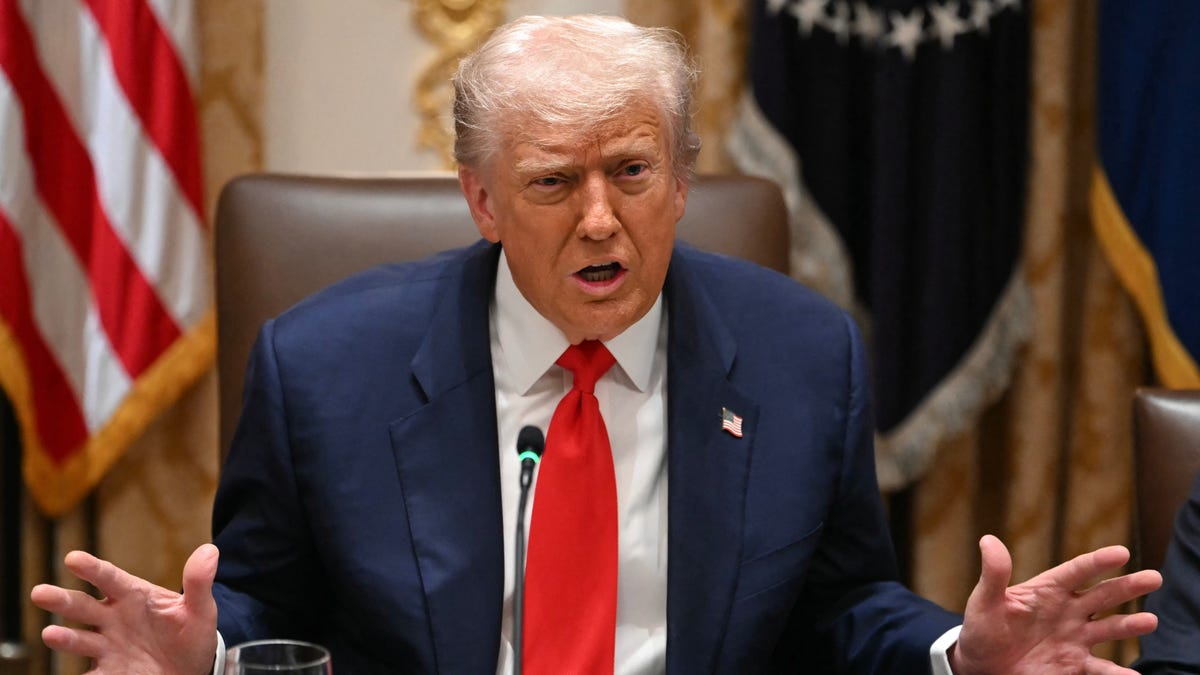American farmers need a president who cares as much about their livelihood right now as he does about the fortunes of a political ally in a far-away country 11 days from now.
Soybean farmers hurting as Trump tariffs effects felt
President Trump has acknowledged tariffs are hurting soybean farmers, the country’s largest agricultural export.
John Bartman was where he wanted to be on Oct. 14 – but not doing what he wanted to be doing – while sitting on the tractor his grandfather purchased in 1965, on the Illinois farm his family has worked for five generations.
Bartman wanted to be harvesting his soybeans – Illinois ranks first among American states in land dedicated to that crop – and selling them to China. Instead, he was using his phone to speak in a Zoom meeting arranged by the Democratic National Committee.
Bartman told the journalists on that call that his family has seen hard times come and go in farming. He recalled the American farm crisis of the 1980s as a time of particular strife. And he blames his current predicament on one man.
“Let’s be clear: This is a man-made disaster caused by Donald Trump and his administration,” Bartman said as soybean farmers across America, in the middle of their annual harvest, have anxiously watched their biggest market vanish.
China, which until 2024 was the biggest importer of American soybeans, has retaliated against Trump’s chaotic trade war tariffs by refusing to buy the crop from our country now, shifting its purchases to other countries.
Farmers like Bartman watched with dismay as China, on Sept. 23, bought 7 million metric tons of soybeans from Argentina, a quarter of that country’s crop this year, after Argentina suspended export taxes to make the deal.
This happened on the same day that Trump met with a political ally, Argentine President Javier Milei, at the United Nations, just before U.S. Treasury Secretary Scott Bessent announced a $20 billion buyout, an infusion of U.S. dollars into Argentina’s central bank to try to stabilize that country’s tumultuous economy.
Trump’s ‘ridiculous trade war’ puts American farmers at risk
And where was Milei on Oct. 14, on the same day Bartman spoke from his tractor? The Argentine president was being welcomed at the White House by Trump. The two men stood for pictures, flashing big smiles and thumbs-up gestures.
A journalist asked Trump what his message was for the people of Argentina. His answer: “We love them. We’ll be there for them. They have a great leader, a very great leader.”
Later, during a lunch meeting with Milei, Trump dished out a healthy serving of double-speak, insisting that he wasn’t trying to save the Argentine president’s political party, while also threatening financial trouble for that country if Milei fails politically.
You see, American farmers like Bartman are in the middle of their soybean harvest. But Milei has a more pressing timeline, as far as Trump is concerned, with Argentina’s Oct. 26 midterm elections just 11 days away.
The influx of American tax dollars clearly is meant to buoy Milei’s political party, after voters in Argentina dealt it a defeat in provincial elections in September.
Trump bailing out a foreign political ally while American farmers wonder where they can sell their crops was the point of the DNC media call, which was joined by Minnesota Gov. Tim Walz, the 2024 Democratic nominee for vice president, and U.S. Rep. Sharice Davids, a Democrat from Kansas.
“This is a ridiculous trade war,” said Walz, who governs one of the top three American states for soybean farming. “You couldn’t write this and be more messed up than putting these tariffs on, putting our farmers at risk, our family farms at risk, turning around and bailing out another country in Argentina, who took their markets.”
Davids, who represents part of a state that ranks 10th in American soybean production, said tariffs can be a useful tool when used responsibly.
“But right now, that’s not what we’re seeing,” Davids said. “We’re seeing an administration with a reckless and unpredictable approach that has led to, literally, the fastest farm bankruptcy pace that we’ve seen in five years.”
Trump’s tariffs may only escalate
Just consider how Trump handled tariffs over the course of this past weekend.
On Oct. 10, he escalated trade tensions with China, announcing additional 100% tariffs on all imports from the country, on top of existing tariffs. By Oct. 12, he was posting on social media that “it will all be fine” while praising Chinese President Xi Jinping. On Oct. 13, all the signs showed that Trump was about to back down.
American stock markets fell and then rebounded with those developments as the Wall Street saying about the president’s TACO trade war tariffs – “Trump always chickens out” – again proved accurate.
That might spell some immediate relief for our 401(k) plans, but it doesn’t do anything for America’s farmers.
Trump, asked about relief for American farmers on Oct. 6, said, “I’m going to do some farm stuff this week.” The week went on. The farm stuff never happened.
Bartman told the journalists on the DNC call that Trump “wants to give farmers a bailout” while farmers want markets for their crops instead.
“A bailout is like putting a Band-Aid on a bullet wound,” Bartman told us. “Government bailouts do not make up for our loss of income. They’re not designed to, and they don’t work.”
American farmers need a president who cares as much about their livelihood right now as he does about the fortunes of a political ally in a far-away country 11 days from now. They’re not getting that from Trump.
Follow USA TODAY columnist Chris Brennan on X, formerly known as Twitter: @ByChrisBrennan. Sign up for his weekly newsletter, Translating Politics, here.
